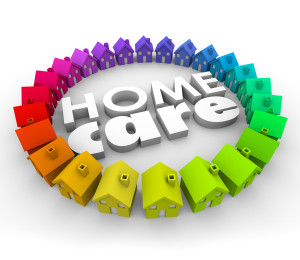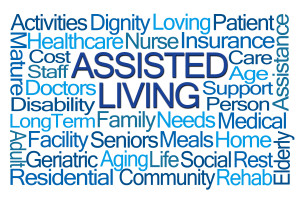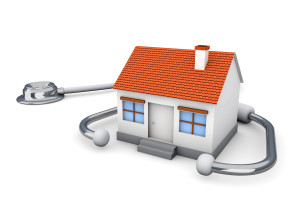In a previous article we discussed the surprising variety of industries that could benefit from customer relationship management software. Today we are going to expand on that list and add in home health care to it. We don’t typically think of healthcare, particularly in the home, as being in need of customer relationship management, but I will show you precisely what it is needed.
For an industry that is so reliant on referrals from doctors and previous customers, the need to manage those relationships is critical. Very few families will dump their loved ones off with a caregiver that doesn’t have an established record of stellar care for not only their patients, but the various other stakeholders (family and doctors, for instance). For the homecare provider this means they must be careful to cultivate a proper relationship with everyone.
Naturally, the more patients the homecare organization cares for, t he more stakeholders they have to manage. This requires software that can scale in complexity and scope to accommodate more and more patients and stakeholders as the practice grows. The feature set offered by the software must be robust enough to help the homecare agency manage every aspect of the customer relationship. Let’s take a look at some of the features this software should possess.
he more stakeholders they have to manage. This requires software that can scale in complexity and scope to accommodate more and more patients and stakeholders as the practice grows. The feature set offered by the software must be robust enough to help the homecare agency manage every aspect of the customer relationship. Let’s take a look at some of the features this software should possess.
Core Features of the Best Home Care Software
Point of care management: Central to the success of the home health care business is its ability to care for the patient. Every patient has different needs, temperament, and situation. This requires that the software provide an easy way to schedule the critical tasks for patient care. Calendar management is something that the home care provider is going to rely on extensively, so the software must accommodate this. In addition to time management, the care provider should have access to all the relevant information regarding the patient’s condition. This means electronic access to the top home healthcare journals.
Client management: A central database of all relevant client information is going to be critical. Each care plan has to be customized to the individual patient, so you need a streamlined system for facilitating the best care for the patient. Beyond care, transportation may be an issue. The patient may require transportation to a physical therapist or other specialist, as part of their care plan. There is no room for error here, so the software must be robust and full proof.
Patient intake: There is a wealth of information that must be collected about each patient and their background when they are taken on as a client. This process shouldn’t be painful and drawn out. The software must help streamline the client onboarding process, so that the critical tasks of patient care can begin much more quickly.
Billing: Let’s face it, home health care is expensive. Not because of greed of providers, but because it’s an intensive process. Patients that need home care are in a bad situation, and as such require the most extensive care. A robust billing system that handles invoicing for the home health care provider is a critical feature for successfully running the business. It should also handle billing Medicaid for you, as you don’t want to spend hours filling out paperwork.
Payroll: Related to billing the clients is paying your own employees. Again, you don’t want to have to spend a massive amount of time inputting data into your accounting software. The home health care software should handle exporting all the relevant payroll data for you.
Reporting: With every visit you should be generating a summary of the day. This helps bring peace of mind to doctors and other stakeholders that your business is doing all the right things to take care of the patient. It also h elps the primary care physician keep abreast of any potential changes that may require their attention. Beyond the individual patient, you want to be able to view the effectiveness of your organization as a whole. How are your current marketing efforts paying off? Do you need to make adjustments to your marketing strategy? These are great questions that the best home health care software can help you address through the use of robust reporting features.
elps the primary care physician keep abreast of any potential changes that may require their attention. Beyond the individual patient, you want to be able to view the effectiveness of your organization as a whole. How are your current marketing efforts paying off? Do you need to make adjustments to your marketing strategy? These are great questions that the best home health care software can help you address through the use of robust reporting features.
Integrated CRM: One would expect the full feature set from the best customer relationship management software. You want to be able to manage all the accounts, contacts, referrals, and events / expenses. You need to know doctors, nurses, family, patients, insurance providers, pharmacies, specialists and… well you get the idea. There are lots of people to keep track of, so one central location that presents all the relevant contacts in a user friendly manner is essential.
The capability to generate more referrals from past and present clients and contacts is going to be essential to scaling your business. You want to build strong relationships with your current contacts and then leverage those to generate new clients. As we said earlier, many people aren’t simply going to do an online search for in home care providers and pick one at random. They are going to contact someone they know, maybe a friend, maybe a physician, and ask for a referral. They want to know that the in home care provider has been properly screened and isn’t going to neglect their critical duties in the care of their loved one.
Another often overlooked feature in sales in general is the art of follow up. The majority of sales, 80%, are made on the 5th to the 12th contact. This means that if your sales team isn’t following up, they are losing out on 80% of your sales potential. This is staggering. Your team must be reminded to be persistent and consistent in the art of follow up. The best home health care systems will have an integrated customer relationship management functionality that will make the follow up process easy and automatic for your sales team. This translates into more clients and more revenue for your business.
One thing that is easy to overlook is predictive analytics capabilities. There is a wealth of information available regarding how much volume a hospital or doctor’s office does. This is a gold mine if you want to expand your business. The software should help you identify those institutions with lots of potential patients that have needs that align to your organization’s capabilities. You can then reach out to the hospital, clinic, doctor’s office and form a relationship to generate referrals over time.
Security features: Since you are dealing with healthcare, there are stringent regulations regarding the confidentiality of patient information. You have to be absolutely certain that the software you are using won’t compromise anything sensitive about the patient’s condition. Be sure the software has strong authentication for users, so that unauthorized persons can’t access patient information at the point of care. You also want to know that the connection between the in home software is encrypted and transmitted on a secure connection to the central cloud. Once it is stored, you want to know that not even the system administrators know the password to your account. This adds an extra layer of security should the cloud servers be hacked.
Additional Features to Consider
This is a service industry that greatly benefits from the use of mobile hardware. It is really helpful if the software is mobile compatible, as it is much easier for the care giver to tote around a tablet than a laptop. This will allow them to minimize the amount of infrastructure they have to carry. Mobile compatibility is also useful for scanning receipts as they come in, to make sure that no expense gets overlooked. It also opens up the possibility for notifications to remind your care giver what task they must complete when.
Something else to be on the lookout for is integration into your other software. If you are using a piece of software for accounting and payroll, then you want to be certain that your home health care management solution can easily integrate into your existing infrastructure. This is critical for ensuring the smooth and continuous operation of your business.
Conclusion
The home health care industry has some unique needs. They are caring for people in a dire or uncomfortable situation, and these folks require intensive care. This means the staff has to have the best technology available to insure they are not missing any treatments, details, or appointments. In addition,  it is an industry that is heavily reliant on the referral model. As such, robust customer relationship management functionality is going to go a long way towards growing the business.
it is an industry that is heavily reliant on the referral model. As such, robust customer relationship management functionality is going to go a long way towards growing the business.
We have given a laundry list of features to look for when you are shopping for your home health care business. Obviously you should always place the patient first, but you do have a business to care for. This means you have to be able to accommodate a larger number of patients as your business grows. You also have to have infrastructure for supporting a sales team that is capable of forming relationships with doctors, hospitals, clinics, and patients. The best home health care software is a marriage of patient care with customer relationship management software.
We hope this has been helpful for you in your search for the right software. Stay tuned for that next article. We hope to see you there!
Latest posts by Thomas Corbin (see all)
- Home Healthcare Software to Boost Your In-Home Care Business - April 30, 2016
- Who’s Who in Campaign Management Software Vendors - April 28, 2016
- Ins and Outs of Content Marketing Software - April 19, 2016




